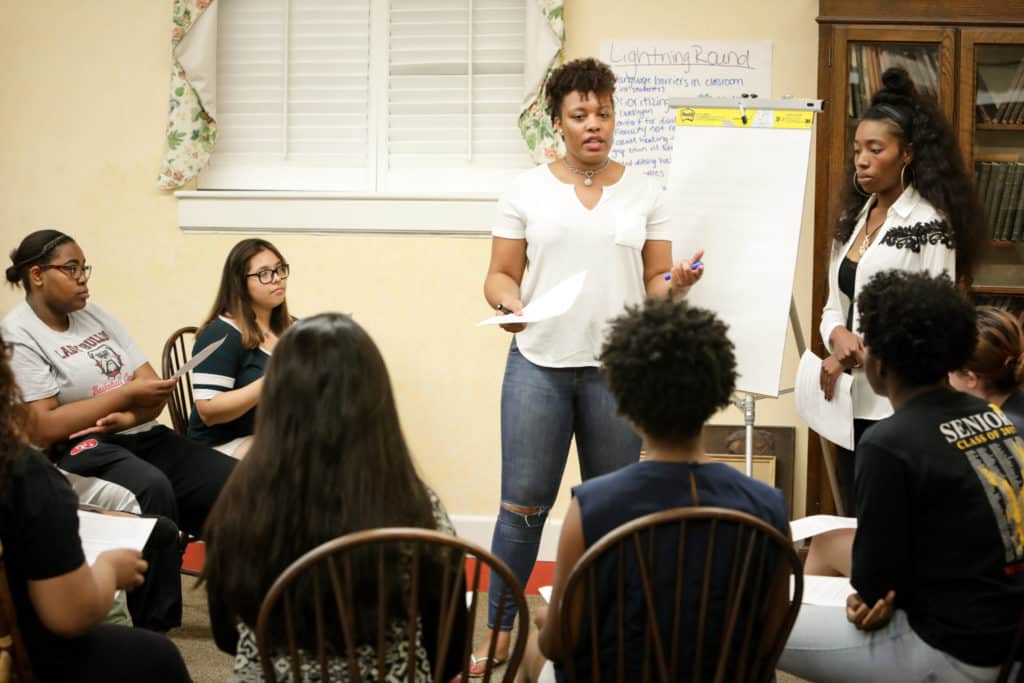
(c) Mary Ann Bates, all rights reserved, [email protected]
Dr. Gloria Alvarez taught a course on Current Moral Problems. The course met a college requirement for oral communication skills. Such courses needed to have structured oral communication exercises throughout the entire semester, with at least a third of the course grade determined by this work. Dr. Alvarez met this goal by putting her students into discussion teams and having them learn to be effective participants in, and facilitators of, collaborative dialogues.
When she first taught her course years ago, Dr. Alvarez thought she should start by offering direct instruction about how to facilitate and participate in discussions. She reasoned that these initial lectures would set up the students with the know-how for the rest of the sessions. But she quickly learned that students didn’t retain much of what she told them in these introductory presentations.
She decided to change her approach to one that focused on just in time instruction followed by teachable moment guidance. Prior to class, students would receive a short (one page) point of attention on a collaborative discussion practice. Students were expected to demonstrate the practice in their discussion. Likewise, the facilitators would receive a specific point of attention as a skill to focus on during the discussion. Dr. Alvarez used some of the class time to demonstrate these specific focal points for each week. In effect, she distributed her instruction throughout the semester in bite-sized chunks in real time.
Each class period had the final 10 minutes reserved for teachable moment guidance. In those 10 minutes, Alvarez would debrief with the students on their discussion experiences. She would share her observations and give students guidance for future discussions. She asked students to keep this guidance in a journal where they reflected on their discursive practice.
As the class continued throughout the semester, students had a collection of collaborative discussion guidance notes, facilitation guidance notes, and teachable moment guidance notes. These were captured in their journals, which the students would be able to use for future reference.
When the Faculty Senate was reviewing the speaking-intensive courses, Dr. Alvarez’s course received special notice for its positive evaluations. One faculty reviewer noted: “Most speaking-intensive courses have focused on presentation skills. The reality is that few of our students will give any formal presentations in their lives after college. But all of them will need to know how to have productive discussions. What Dr. Alvarez is teaching reflects more closely what our graduates are expected to do in their careers.”
Collaborative discussion skills are vital communication skills that often get overlooked in favor of things like presentations or speeches. Yet they have a lifespan and relevance that extend into most every career and into the very practice of active democratic citizenship. If you’re interested in teaching these skills, check out the Interactivity Foundation’s Education Resources and the Collaborative Discussion Toolkit.
* * *
“If you can just communicate, you can get by. But if you communicate skillfully, you can work miracles.” – Jim Rohn (entrepreneur, motivational speaker)
This post is part of our “Think About” education series. These posts are based on composites of real-world experiences, with some details changed for the sake of anonymity. New posts appear Wednesday afternoons.



